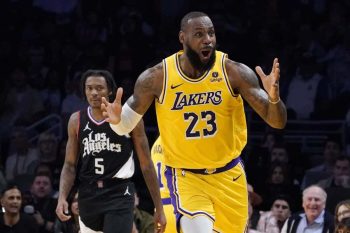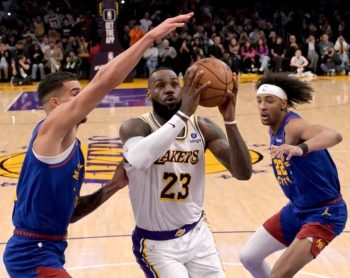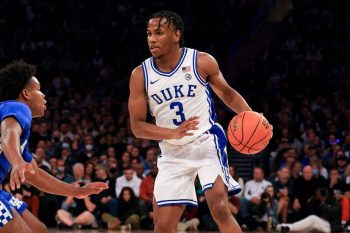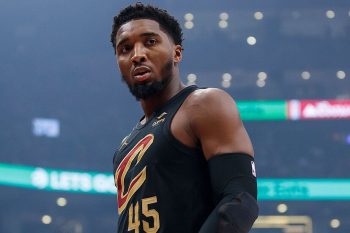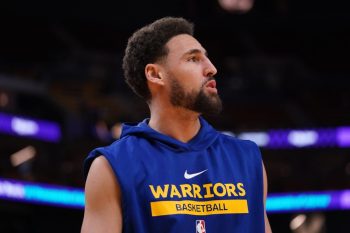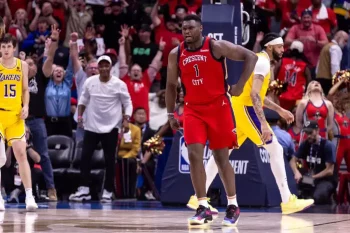NBA
NBA AM: Best Players Not in the Hall of Fame
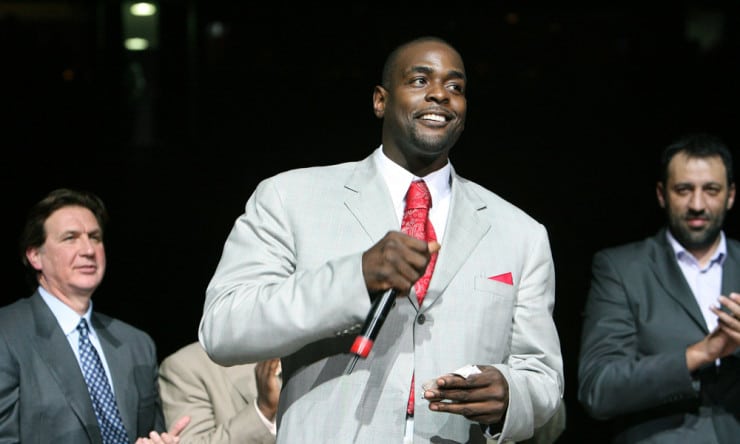
The 2016 class of Hall of Fame inductees is a rather high-profile one, with Shaquille O’Neal and Allen Iverson leading the list of candidates who were enshrined as soon as they possibly could be. Every year there are guys like that – no-brainers who did more than enough over the course of their career to get themselves a fast pass into the sport’s most revered shrine.
But what about those players who had really, really good careers but aren’t sure thing first-ballot Hall of Famers? What must it feel like to have been among the most talented, most dominant players in the game during their respective eras, only to be told they’re just not quite good enough to be awarded basketball’s most prestigious individual honor?
It still could happen for any of these guys, but while they wait plenty of other players make it in ahead of them, not all of them more deserving. The following are the best players in NBA and ABA history not to have been named to the Hall of Fame, along with why perhaps they should be:
Jack Sikma – Of all the players who have not yet been admitted into the Hall of Fame, few players generate quite as many interesting points on both sides of the argument as Sikma. He was a seven-time All-Star, but his career stats (15.6 PPG and 9.8 RPG) are good but not awe-inspiring. He dominated in college and won an NBA championship, but he attended tiny Illinois Wesleyan University, a Division III school, and his championship was one of the less memorable in league history as a member of the 1979 Seattle SuperSonics. He never made an All-NBA Team, but how could he when up against Kareem Abdul-Jabbar and Moses Malone? Despite all the back-and-forth, Sikma really was a consistently excellent NBA player who absolutely was elite in his era and has a ring to show for his efforts. In fact, he’s the only seven-time All-Star in league history not to be enshrined. If any of the old-school snubs should find his way into the Hall, he should be the one.
Shawn Kemp – Maybe the most exciting Sonics player of all-time, the Reign Man treated rims like demolition crews treat decrepit buildings. Athleticism alone does not a Hall of Fame player make, but Kemp has a resume that should at least garner him some consideration for the Hall in the years to come. He was named to the All-NBA Second Team three times and earned six All-Star selections, and while Kemp didn’t retire with any rings, he did make it to the Finals in 1996 and helped give Michael Jordan’s Bulls a decent run for their money. He finished his career with over 15,000 points and 9,000 rebounds, and he was an absolute joy to watch in his prime – all of which counts in his favor in terms of Hall of Fame potential.
Mark Aguirre – To be fair, Aguirre is a member of the National Collegiate Basketball Hall of Fame, but he is still waiting for his admission into the Hall that really matters. After his star career at the University of DePaul in Chicago, Aguirre was drafted first overall in 1981, at which point he immediately helped turn the Dallas Mavericks into one of the best teams in the league. He won his two rings after being traded to the Bad Boy Pistons of the late ‘80s, and he was named to three All-Star teams over the course of his career. He averaged 20 PPG over 14 years in the league, making him one of the most effective and consistent scorers of his era. That, added to his laundry list of college accolades, make him an intriguing possibility for enshrinement.
Ben Wallace – If admitted, Wallace would be the first undrafted NBA star to make the Hall of Fame, which is pretty incredible, frankly. At only 6’9, Wallace never should have been as dominant defensively as he was, but he still put up amazing defensive numbers in his prime—enough to earn him four Defensive Player of the Year Awards and five All-Defensive First Team designations. In 2002-03, he averaged a career-high 15.4 RPG and the following season he swatted away a career-high 3.5 BPG, all of which came right around the same time he won a title with the Detroit Pistons. His career 6 PPG and atrocious free-throw shooting might work against him, but he’s one of the best defenders ever. Even with dismal offense, he’ll be one of those guys who at least ends up in the conversation every single year until he makes it in.
Tim Hardaway – The man who popularized the “Killer Crossover” has been on the brink of Hall of Fame enshrinement for a few years now but has continually come up just a bit short as voters can’t quite seem to agree on whether or not he belongs. Over the course of his career he was named to five All-Star teams, one All-NBA First Team, three All-NBA Second Teams and one All-NBA Third Team. He helped turn the Miami HEAT into a contender, and while he didn’t win a ring there, he did set the table for the group that did a couple years after he left. His career was a long and successful one, making him one of the best eligible players not to be in the Hall.
Chris Webber – Whether he deserves it or not, Webber’s career always has been defined by that ill-fated timeout he called during the national championship as a member of the University of Michigan team that lost in heartbreaking fashion to the University of North Carolina in 1993, but Webber’s career was so much more than that. As a contemporary of Dirk Nowitzki and Kevin Garnett, two sure-thing Hall of Famers, there once was a real argument that Webber was the best of them. He ran the break like a point guard, passed as well as any big man the game has ever seen, and played some of the most efficient and exciting basketball of the era. Nobody could stop Webber in his prime, which is a big reason why he made five All-Star Teams and five All-NBA Teams, including an All-NBA First Team selection. He was an elite player in his era, and one of the most unfair Hall snubs alive.
Kevin Johnson – The numbers are there for KJ, who averaged 17.9 PPG, 9.1 APG and 1.5 SPG over the course of 12 NBA seasons. He made five All-Star teams, was named to five All-NBA Teams and played in the 1993 NBA Finals against Michael Jordan and the Chicago Bulls. Had he spent more seasons healthy, he’d probably be a lock for the Hall of Fame, but he played 70 games or fewer in six of his 12 seasons. That apparently has made it hard enough to get him inducted, even though he was named a finalist earlier this year. He fell short this time around, but he won’t always. It seems like only a matter of time before he finds his way into the Hall of Fame.
George McGinnis – It’s been so long since McGinnis retired in 1982 that it gets less and less likely every year that he’ll get his shot at enshrinement, but considering he’s the only eligible NBA or ABA MVP not to have been named makes his lack of inclusion all the more painful. McGinnis himself has said that he probably won’t get inducted, which is sad for a guy who was as successful as he was in the ABA. He won two championships there with the Pacers, but was named an All-Star in the NBA three times and played in the 1977 NBA Finals after the merger as well. The fact that Indiana foolishly traded away Alex English to reacquire him late in his career is an unfair mark against him, as his career 17.2 PPG and 9.8 RPG are really good numbers that deserve more of a look at the Hall than he’s ever gotten.
***
The Hall of Fame can’t let every halfway decent NBA player into its ranks, but there are a handful of players who genuinely deserve to be added. Many of these players either are in serious conversation for enshrinement right now or have been for years. Hopefully each of them gets his due while he’s still alive to enjoy it.
